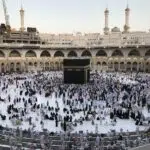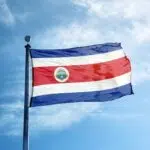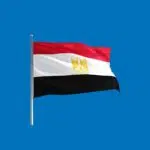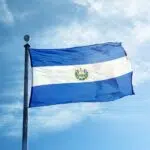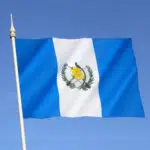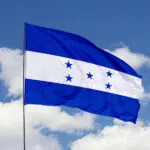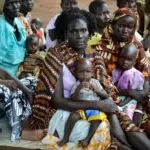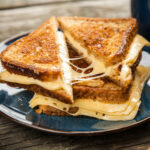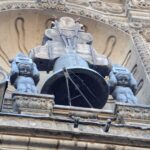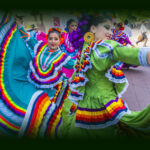Al-Mouled Al-Nabawy, sometimes called Moulid El Nabi, occurs on the 12th day of Rabi’i al-Awal, the third month of the Islamic calendar, and this year, that falls on September 15. It’s a national holiday in Egypt, with festivities celebrating the Prophet’s (P.B.U.H.) birth. Al-Mouled Al-Nabawy is based on lunar observations, so the date may differ from past forecasts. For the declaration of Muslim holidays, there must be a clear sky, and other conditions must be met, making it impossible to determine the precise date and time.
History of Egypt: Al-Mouled Al-Nabawy
During the Fatimid dynasty (10th to 12th century), ruling families held lavish feasts for the poor and needy and distributed large amounts of Halawet El-Mouled sweets, often made from different nuts and honey. As the celebration approaches, businesses begin selling these treats.
Arouset el-Moulid, bride-shaped dolls that come in various forms, are also sold in a bid to get young couples to marry during the celebration. One legend about the doll’s origin mentions the sixth Fatimid caliph, Al-Hakim bi-Amr Allah, who toured the town with one of his wives in commemoration of Al-Mouled Al-Nabawy. Struck by her beauty, a confectioner whipped up a dessert in the shape of a bride.
Apart from eating sweets, Sufi groups walk to the streets near the Al-Hussein Mosque, thought to be the final resting place of the Prophet Muhammad’s (P.B.U.H.) grandson, and chant in honor of the holiday’s religious significance. This yearly religious event is held at the Al Azhar University in Egypt. It is attended by the Egyptian president and the Grand Imam, who the Egyptian Ministry of Endowments invites.
Egypt: Al-Mouled Al-Nabawy timeline
On the 12th day of Rabi’i al-Awal, The Prophet (P.B.U.H.) is born in Mecca, the holy city.
Angel Jibreel delivers the earliest revelations of the Quran to the Prophet (P.B.U.H.) in the Cave of Hira.
In what is known as the ‘hijra’ or ‘flight,’ Muhammad and his followers journey to Medina from Mecca.
After a brief illness, the Prophet (P.B.U.H.) dies in Medina and is buried in a Mosque on June 8.
Egypt: Al-Mouled Al-Nabawy FAQs
What was the full name of the Prophet Muhammad (P.B.U.H.)?
His full name is Abū al-Qāsim Muhammad ibn ‘Abd Allāh ibn ‘Abd al-Muṭṭalib ibn Hāshim, but he was known as Prophet Muhammad (P.B.U.H.).
((Why was he called the Seal of the Prophets?))
Prophet Muhammad (P.B.U.H.) is called the Seal of the Prophets because Muslims believe he is Allah’s final prophet and messenger.
Why was he called the Seal of the Prophets?
Prophet Muhammad (P.B.U.H.) is called the Seal of the Prophets because Muslims believe he is Allah’s final prophet and messenger.
How is Al-Mouled Al-Nabawy celebrated in other countries?
Many Muslims observe Al-Mouled Al-Nabawy. However, others prefer to mark the occasion with peaceful contemplation and prayer rather than festivities. All Muslims show the utmost reverence for the Prophet Muhammad (P.B.U.H.), no matter how they spend this holiday.
How to Observe Egypt: Al-Mouled Al-Nabawy
Try Malban
Malban, a Turkish delight–like confection, is the most popular of the special sweets eaten around the holiday. Starch, sugar, and water are used to make the dough, which is then packed with walnuts and coated in powdered sugar. Try this treat to get a taste of the celebrations.
Send greeting cards
Send greeting cards to anyone you know who celebrates this important day. It’s an excellent way to wish them a happy Al-Mouled Al-Nabawy.
Join circles of remembrance
‘Halaqat al-Dhikr,’ or circles of remembrance, is a common practice among Sufi groups on this day. They gather in some of Egypt’s most revered mosques to sing religious songs and hymns praising the Prophet Muhammad (P.B.U.H.).
5 Facts About Prophet Muhammad (P.B.U.H.)
He was trustworthy
Medina’s Jewish community held Muhammad (P.B.U.H.) in high regard and thought of him as someone whose word they could rely on, leading to his nickname, ‘The Trustworthy.’
His father died
Before Prophet Muhammad (P.B.U.H.) was born, his father, Abdullah ibn Abd al-Muttalib, passed away.
He never ate alone
Since eating together is regarded as Sunnah, Muhammad (P.B.U.H.) never dined alone and invited people to join him, cautioning others to do the same.
He has a storied ancestry
Muslims believe that his ancestry goes all the way back to the Prophet Ismail (A.S.).
He was a preacher
His public preaching of Islam commenced in 613 A.D., three years after Angel Jibreel revealed the first Quran verses.
Why Egypt: Al-Mouled Al-Nabawy is Important
The celebrations have roots in the country
To understand the significance of the celebrations, it’s important to understand their roots in the country’s history. The traditions were first introduced during the Fatimid rule. Before then, celebrations were limited to the readings of the Quran. As a byproduct of Fatimid governance, special Al-Mouled Al-Nabawy treats are made, and tents have been erected for Sufi singing.
It’s full of festivities
Filled with beautiful festivities and religious rites, Al-Mouled Al-Nabawy is highly anticipated by millions of Muslims in Egypt. People of all ages gather to participate in the festivities, give alms to the needy, and share stories and teachings from the Prophet (P.B.U.H.).
It commemorates a great prophet
He was a charismatic leader, master teacher, and role model for how to best serve Allah. To him, family was the cornerstone of a caring society that instills values and nurtures faith. He served as a spiritual and practical leader until he died in 632 A.D.
Egypt: Al-Mouled Al-Nabawy dates
| Year | Date | Day |
|---|---|---|
| 2022 | October 8 | Saturday |
| 2023 | September 28 | Thursday |
| 2024 | September 15 | Sunday |
| 2025 | September 4 | Thursday |
| 2026 | August 25 | Tuesday |




